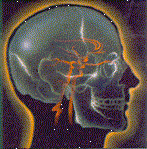"All research, however good its intentions, necessarily involves risks," Oxford University neuroscience professor Colin Blakemore explained at a workshop on "ethical dilemmas in brain research" held by Parliament’s Science and Technology Options Assessment (STOA) team.
 "All research, however good its intentions, necessarily involves risks," Oxford University neuroscience professor Colin Blakemore explained at a workshop on "ethical dilemmas in brain research" held by Parliament’s Science and Technology Options Assessment (STOA) team. However as all speakers noted, that doesn’t make the choices researchers face any easier.
"All research, however good its intentions, necessarily involves risks," Oxford University neuroscience professor Colin Blakemore explained at a workshop on "ethical dilemmas in brain research" held by Parliament’s Science and Technology Options Assessment (STOA) team. However as all speakers noted, that doesn’t make the choices researchers face any easier.
For Professor Blakemore minimising harm is the core of ethical practice in research and clinical intervention. "This very interesting, sometimes complex debate about balance between the benefits and hazards of research is vital for new scientific brain research," he explained at the workshop on 22 March, organised by STOA for this year’s Brain Awareness Week.
Opening the hearing, STOA chairman Paul Rübig said, "brain research raises the questions about where the frontier is between living and dead, profitable and unprofitable lives, which is hardly raised by other biomedical fields".
Longer isn’t always better
Modern treatments have already significantly extended life span, but a longer life sometimes means suffering from illnesses that were almost unheard of in the past, noted Dr Mary Baker, president of the European Brain Council, speaking of "mental diseases like depression, bipolar disorder, Parkinson's, strokes and others".
What’s more, we are still culturally and socially unprepared. There are still too many prejudices about mental illness, creating "an acute need to shift perceptions", mainly through the media, as well as by "working on emotions", said Dr Alastair Benbow from GlaxoSmithKline.
Do no harm: yes but...
Medical science is still far from perfect and many diseases remain incurable, pending further research. Research however is not synonymous with magic. Professor Jean Schoenen, of the University of Liege presented a case study of a patient suffering from extremely painful cluster headaches, for which there is little remedy. With no prospect of treatment, the patient ultimately committed suicide.
Science can and must advance but it isn't easy, he said, speaking of another patient who had electrodes successfully planted in her brain only to die of a cerebral haemorrhage.
Is there a solution? "Ethically speaking we should not inflict harm on others, but in reality we need to do it in order to progress," Dr Karin Blumer, of Novartis acknowledged.
No pain, no gain
There is also such a thing as harming a patient by omission, she said. By "stopping research for ethical reasons, we fail to provide therapy for those suffering from diseases we cannot cure today". Animal testing has a definite role to play and if the dilemma between testing on animals and letting illnesses go untreated cannot be resolved it should be addressed in a transparent way, she said.
Dr Rick Achten, from Belgian neuroscience think tank Breinwijzer, insisted on the need to better inform the public, especially as brain research inevitably treads on very sensitive ground: "Brain research goes further than medical issues: it aims to explore the limits of extending the capacity of the brain to make our work even more effective."